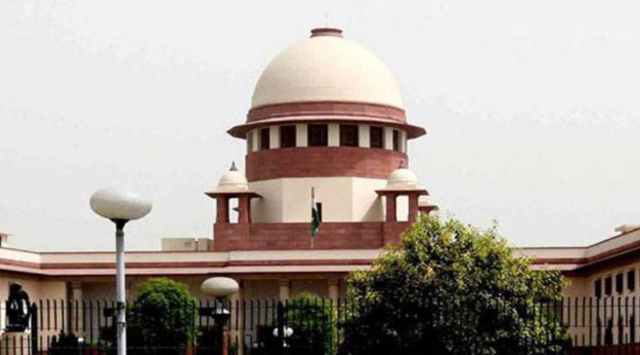Chhattisgarh Govt moves Supreme Court challenging PMLA provisions; hearing on May 4
The suit said the Chhattisgarh Government was in receipt of complaints from officials and others alleging that ED is "torturing, abusing, and manhandling" them in the garb of conducting a probe and that the state was forced to approach the court against the blatant and excessive misuse of powers.
 Supreme Court of India. (File)
Supreme Court of India. (File) The Supreme Court will hear on May 4 a suit filed by Congress-ruled Chattisgarh challenging the provisions of the Prevention of Money Laundering Act (PMLA), 2002. Appearing for the state, Senior Advocate Mukul Rohatgi told a bench presided over by Chief Justice of India D Y Chandrachud that it raises certain important constitutional questions and sought an urgent hearing.
The original suit filed under Article 131 of the Constitution alleged that central probe agencies like the Enforcement Directorate were being misused to “intimidate”, “harass” and “disturb” the normal functioning of non-BJP state governments.
Article 131 says that the Supreme Court shall have original jurisdiction in any dispute between the Government of India and one or more States. It empowers a State to move the Supreme Court directly in matters of dispute with the Centre or any other state.
The suit said the Chhattisgarh Government was in receipt of complaints from officials and others alleging that ED is “torturing, abusing, and manhandling” them in the garb of conducting a probe and that the state was forced to approach the court against the blatant and excessive misuse of powers.
The suit, filed through Advocate Sumeer Sodhi, said the “present case is a perfect example of how the central investigation agencies are being misused by those in power in order to intimidate, harass and disturb the normal functioning of an opposition government in the state of Chhattisgarh”.
A three-judge bench of the SC had on July 27, 2002, upheld the PMLA law, including powers of the ED regarding arrest, search, attachment and seizure in money laundering offences.
The court underlined that “the principle of innocence of the accused/ offender is regarded as a human right” but “that presumption can be interdicted by a law made by the Parliament/Legislature”. It also said that an Enforcement Case Information Report (ECIR) cannot be equated with an FIR, supplying an ECIR in every case to the person concerned is not mandatory, and “it is enough if ED, at the time of arrest, discloses the grounds of such arrest”.
Subsequently, on August 25, 2022, the SC, while hearing petitions seeking review of the judgement, agreed to take a relook at two of the conclusions in it – regarding the supply of ECIR to the accused and the other pertaining to the burden of proof.







